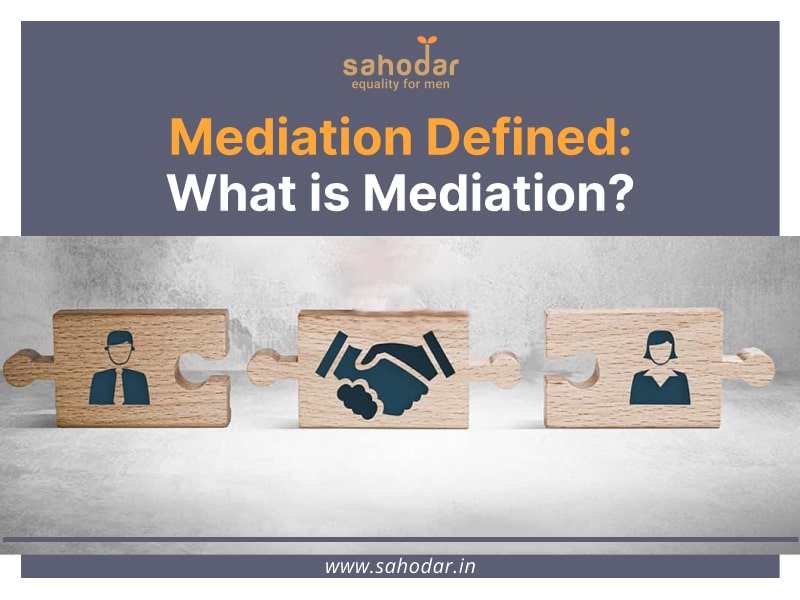What Are The Types of Mediation?
Mediation is a versatile and widely used method for resolving disputes more amicable, cost-effective, and less formal than litigation. It can take place in several contexts, not just through the courts.
Court-Referred Mediation
- Definition: a judge may recommend or mandate that the parties attempt mediation before proceeding with a full trial. This is often done to reduce the court’s caseload and encourage alternative dispute resolution.
- Process: The mediation is typically conducted by a court-appointed mediator or through a mediation centre associated with the court. If the mediation is successful, the agreement is submitted to the court for approval. If it’s fails, the case returns to litigation.
- Typical Cases: Courts commonly refer civil disputes, divorce settlements, child custody cases, commercial conflicts, and certain criminal matters (such as minor offences or disputes requiring restorative justice) to mediation.
- Advantages: Reduces the burden on the judicial system, saves time and money for both the parties and the court, and often leads to more tailored and flexible outcomes than a court ruling.
Private Mediation
- Definition: In private mediation, the parties voluntarily agree to mediate their dispute without the involvement of a court. This process is often used before legal proceedings begin, but it can also be used at any stage of a dispute.
- Process: The parties select a neutral third-party mediator who may be an expert in the dispute (e.g., family law, business, etc.). The mediator helps the parties communicate effectively and work toward a mutually agreeable solution.
- Typical Cases: Commercial contract disputes, family conflicts (divorce, child custody), workplace disputes, and real estate matters.
- Advantages: Private mediation is confidential, voluntary, and less adversarial than court proceedings. It offers the parties more control regarding scheduling, process, and outcome. Since court timelines do not bind private mediation, it is often faster.
- Cost: The parties bear the cost of hiring a mediator, which is typically much cheaper than protracted litigation.
Community Mediation
- Definition: Community mediation is typically provided by non-profit organisations, local governments, or community-based groups to resolve minor disputes within a neighbourhood or community setting.
- Process: Mediators in this context are often volunteers or trained professionals who help resolve noise complaints, property boundaries, family disagreements, or school-related issues.
- Typical Cases: Neighbour disputes, tenant-landlord conflicts, school-related issues, small civil matters, etc.
- Advantages: It is usually free or low-cost and helps preserve relationships between community members by fostering open communication and compromise.
Workplace Mediation
- Definition: Mediation is a process used in the workplace to resolve conflicts between employees or between an employee and an employer. It helps to address issues like discrimination, harassment, or disputes over employment contracts.
- Process: Many companies offer internal mediation through human resources, while others may bring in external mediators to resolve more complex issues.
- Typical Cases: Disputes between coworkers, employees and supervisors, allegations of discrimination or harassment, disputes over salary or promotions, etc.
- Advantages: Helps maintain positive workplace relationships, avoids costly legal battles, and can result in a mutually acceptable solution that preserves job roles and professional reputations.
Contractual or Mandatory Mediation
- Definition: In some cases, contracts between parties include a clause that mandates mediation in the event of a dispute. This is common in business contracts, construction agreements, or insurance policies.
- Process: The parties are legally obligated to attempt mediation before proceeding with litigation. They can escalate the issue to arbitration or court if mediation is unsuccessful.
- Typical Cases: Mandatory mediation clauses are often included in business agreements, commercial leases, service contracts, or insurance disputes.
- Advantages: Helps to prevent disputes from escalating into litigation, which can be time-consuming and expensive. It also fosters good business relationships by encouraging compromise and cooperation.
Online Mediation
- Definition: Online mediation has grown in popularity recently due to technological advancements and the need for remote dispute resolution options.
- Process: Using video conferencing tools, emails, or dedicated online platforms, parties can participate in mediation sessions without being physically present in the same room. This is often useful for international disputes or situations where parties are geographically distant.
- Typical Cases: Commercial disputes, international trade conflicts, family law matters, workplace issues, and online marketplace conflicts.
- Advantages: It is convenient, cost-effective, and time-saving. It allows for global participation and can be scheduled more easily than traditional, in-person sessions.
Benefits (Across All Types)
- Cost-Effective: Mediation is usually far less expensive than litigation since it requires fewer resources and time.
- Confidential: Unlike court cases, mediation is private, and the details are not public, which can be crucial in sensitive disputes.
- Control: The parties have more control over the outcome since they can negotiate the terms directly. In court, the decision is left to a judge.
- Faster Resolution: Mediations generally take far less time to resolve than court cases, which can drag on for months or years.
- Preservation of Relationships: Mediation is a less adversarial process that focuses on collaboration and compromise, which can help preserve personal or business relationships that might otherwise be damaged by litigation.
- Flexible Solutions: Mediation allows for more creative and flexible solutions that may not be available in a formal court ruling.
Challenges
- Non-Binding (in some cases): If mediation is non-binding, either party can walk away without resolving the dispute, leading to further legal action.
- Power Imbalances: If one party holds significantly more power than the other (financial, emotional, or legal), mediation may not result in a fair outcome without safeguards.
- Lack of Precedent: Mediation is private and informal, so it doesn’t create legal precedent, which can be crucial in cases where broader legal principles must be established.
Overall, mediation is a highly adaptable and effective way to resolve disputes in various contexts, both inside and outside the court system.

